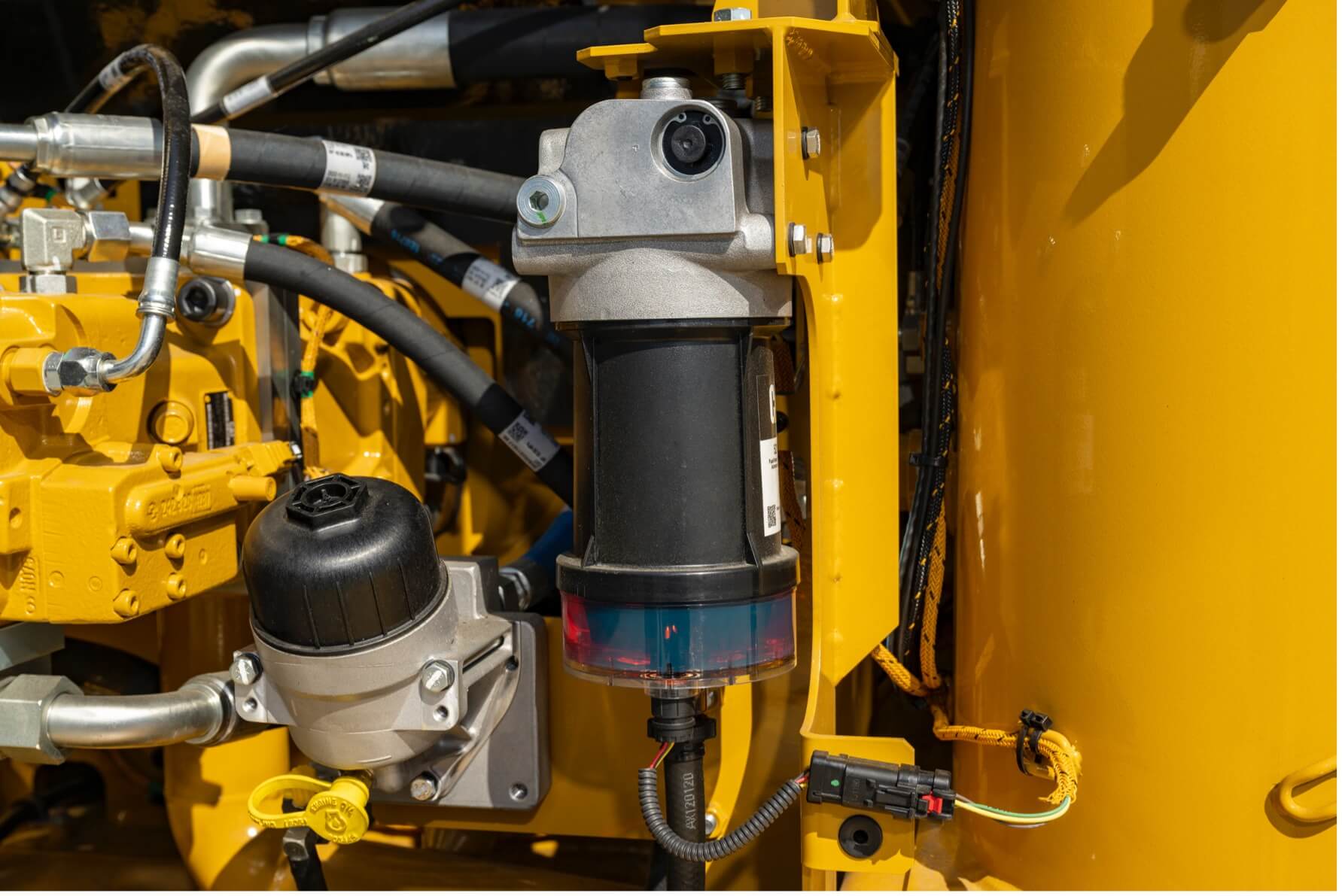Understanding and Maintaining Your Hydraulic Systems

Understanding and Maintaining Your Hydraulic Systems
Hydraulics are the hidden heroes behind the heavy equipment in a variety of industries, including construction, mining, landscaping, and more.
Hydraulic systems pump pressurized fluid through hoses or tubes to convert hydraulic energy into mechanical force. These systems are key to almost every type of heavy equipment, like engines, brakes, and lifting mechanisms.
When hydraulic systems fail, the equipment stops working, and productivity grinds to a halt. Let’s discuss how hydraulic systems work, why they are important, and how to keep your hydraulic equipment running at peak performance.
Hydraulic Components
Bulldozers, backhoes, log splitters, shovels, loaders, forklifts, and cranes are all examples of heavy equipment that have hydraulic components. Hydraulics powers the arms of backhoes and excavators. The blades of bulldozers and the box of a dump truck rely on hydraulics. Behind the buckets lifting dirt or the swinging arm of a boom are a number of hydraulic components.
Modern hydraulic systems depend on pressurized fluid – most commonly petroleum-based oils called mineral oils. These come in a variety of viscosity based on the specific equipment specifications.
At the heart of the system is the hydraulic pump, which keeps fluid flowing to other parts. Pumps are typically powered by an electric motor or an engine and are essential for creating the pressure in the system. Pumps come in several varieties, including gear, vane, axial piston, and radial piston pumps.
Reservoirs store fluid in the system while transferring heat and allowing air and moisture to escape. Fluid flows through piping and hoses throughout the system.
Valves are used to start and stop the flow of fluid as well as control the route it takes throughout the system. Hydraulic valves are typically formed from spools or poppets. Hydraulic actuators keep the force constant in the system.
Other important elements of a hydraulic system include seals, fittings, connections, and filters, which all play a role in maintaining pressure. Filters also prevent particulates from entering the system and causing damage.
At Boyd CAT, we have a wide variety of hydraulic pumps, cylinders, and other system replacement parts. Customers can choose between brand-new parts, high-quality used products, or remanufactured items that have been expertly rebuilt to comply with high Caterpillar quality standards.
Our knowledgeable parts specialists can guide you through the selection process, and our expert hydraulic service techs are available to install all parts.
Benefits of Hydraulics
Hydraulic systems offer a number of advantages when compared to mechanical, electrical, or other alternatives.
Equipment powered by hydraulics applies more force and can move heavier loads without the need for gears or pulleys. They also contain fewer moving parts, making maintaining and repairing the equipment simpler.
Hydraulic systems tend to last longer and are less likely to fail than others. Because they are easier to maintain, hydraulic equipment is a cost-effective choice. Fewer repairs and parts replacements mean lower equipment operating costs.
Hydraulic equipment shines in situations where precision is important because it is easier to control than mechanical or pneumatic equipment. It also is ideal when a job site necessitates quieter operations because hydraulics tends to make less noise than other power sources.
Finally, hydraulic systems are often safer because they do not produce sparks. This quality makes them ideal in areas like mines and chemical manufacturing to reduce the risk of fire or explosions.
Signs of Hydraulic Equipment Failure
When a hydraulic system begins to fail, it gives off several signs that indicate the need for maintenance or repair.
- Noise: Excessive noise may indicate a problem with the hydraulic system – including the presence of air, worn parts or couplings, and impending valve failures.
- Heat: Similarly, a system that is producing excessive heat also needs attention. An engine, valve, or pump may be the problem in these cases.
- Oil flow: Hydraulic systems depend on the flow of oil, and when the pump and other components are damaged or misaligned, the oil may overflow, slow, or even stop moving.
- Erratic movement: If your equipment moves erratically, it is a sign that something is wrong.
While operators should learn the signs that hydraulic equipment needs attention, it is best to leave diagnostics and repairs to professional technicians. Boyd CAT has a staff of knowledgeable hydraulic specialists who provide comprehensive hydraulic services.
Hydraulic Maintenance
Preventative maintenance and quality repairs are critical to the ongoing operation of hydraulic equipment. We use advanced diagnostic testing and technology at our three full-service hydraulic shops. Our facilities repair hydraulic pumps, cylinders, and components, including a full-service hydraulic hose shop where we build and repair hoses to your exact specifications. We also provide a six-month warranty for all hydraulic repairs, protecting your investment and bringing you peace of mind.
With our three hydraulic shops – in Paducah, KY, Corbin, KY, and Beckley, WV – we can transfer parts and machines from any of our locations or directly to your site. We also provide hydraulic service for equipment from allied manufacturers such as Volvo, John Deere, Komatsu, and others.
Timely fluid analysis is a key aspect of regular hydraulic maintenance. By performing fluid analysis about every 500 hours of operational time, you can help ensure peak system performance and prevent premature component failures.
We offer S•O•SSM Fluid Analysis service for Cat® machines, which analyzes hydraulic fluid health, reveals the wear rate of internal hydraulic systems components, enables repairs or replacements prior to component failure, and more.
Boyd CAT knows how important your machinery is to keep your business running. Contact us today to learn how we can help you with hydraulic equipment, maintenance, repair, and more.
